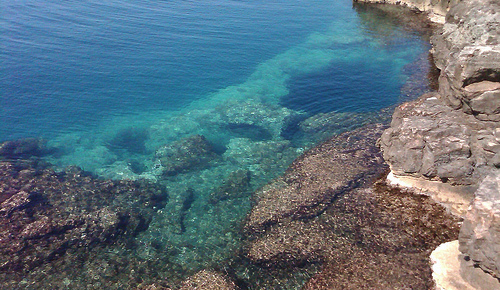
In a new study recently published on Regional Environmental Change a team of scientists (among them, CMCC researchers M. Santini, A. Collalti, R. Valentini from IAFENT Division) analyzed the uncertainty upon predictions of the future Euro-Mediterranean vegetation distribution, carbon dynamics, and water budget by using an ensemble of simulations based on the Lund-Potsdam-Jena (LPJ) model.
Results highlighted a general critical situation in terms of water availability in the Mediterranean area, exacerbated by the potential occurrence of extreme-related events (e.g., fires due to more frequent droughts). Although more uncomfortable climate conditions were projected for vegetation, net primary production (NPP) was predicted to increase due to the potential enrichment of CO2 in atmosphere and its fertilization effects on vegetation.
The abstract of the paper:
Scientific community and policy-makers share the common interest in identifying and evaluating potential impacts of climate change on ecosystems, relying mainly on probabilistic methods of exploring the risks. In this perspective, the concept of ensemble forecasting makes possible to handle uncertainties associated with climate risk analysis by focusing on a range of potential or probable impact scenarios rather than actualizing a single case. In this paper, an ensemble of simulations based on the Lund-Potsdam-Jena (LPJ) model was used to investigate the uncertainty upon predictions of the future Euro-Mediterranean vegetation distribution, carbon dynamics, and water budget. Twenty simulations from past to future were based on the combination of different climate inputs, vegetation model parameterizations, and configurations. The evaluation of results combined the separate deterministic future projections from the LPJ model into a single probabilistic projection, associating a likelihood degree in accordance with the most recent Intergovernmental Panel on Climate Change terminology. Results projected a general critical situation in terms of water availability, made more serious if considering that also the occurrence of extreme-related events, e.g., fires, is expected to become more frequent as favored by more recurrent drought episodes. Although more uncomfortable climate conditions were projected for vegetation, net primary production (NPP) was predicted to increase due to the potential enrichment of CO2 in atmosphere and its fertilization effects on vegetation. The combination of rising NPP and fire frequency may shape the carbon cycle components, as the carbon losses by fire also were projected to increase.
Read the full paper:
Santini M., Collalti A., Valentini R.
Climate change impacts on vegetation and water cycle in the Euro-Mediterranean region, studied by a likelihood approach
2014, Regional Environmental Change, DOI: 10.1007/s10113-013-0582-8.


